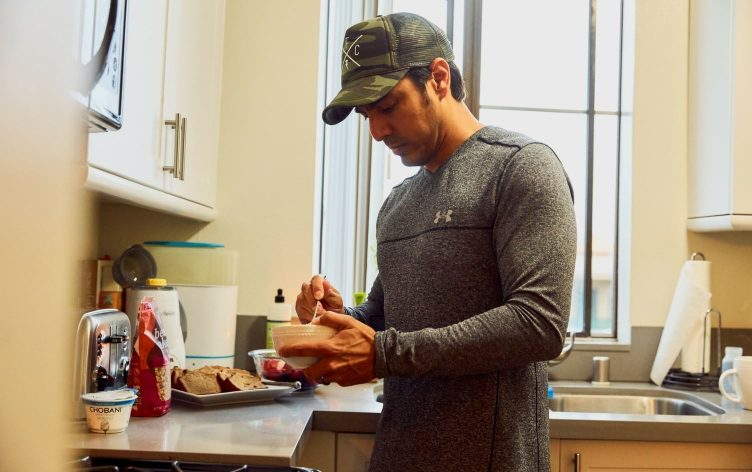
For many years, we’ve been told exercise for weight loss is a double-edged sword. It makes reaching your goal easier if you combine it with cutting calories, but too much may make you eat more, negating any calorie burn you’ve achieved by working out. But a new small study published in the American Journal of Physiology-Regulatory, Integrative and Comparative Physiology found high levels of exercise may not make us eat more.
THE RESEARCH
Researchers split 36 sedentary, overweight and obese men and women into two groups. Both did personalized workouts five days a week for 12 weeks, but one worked out to burn 300 calories per session while the other sweated until they burned 600 calories per session.
In the end, the group who burned 1,500 calories a week compensated by 943 calories a week, while the exercisers who burned 3,000 calories compensated by 1,007 calories. “With more exercise, they didn’t compensate more,” says lead author Kyle Flack, PhD, RD, a professor of dietetics and human nutrition at the University of Kentucky. “They ate about 1,000 calories more, regardless of how much they exercised.”
Participants’ resting metabolic rate didn’t change, and they weren’t less active overall, so researchers believe they ate more, even though their food recalls didn’t show this. “When you have a negative energy balance due to exercise, you may not realize your potions and what you are eating,” Flack explains. Changes in hormones that control hunger and the rewarding aspect of food may make you eat more, he adds.
The bottom line isn’t that you need to burn 3,000 calories a week; rather, be aware that this compensation happens and pick the best plan for you.
FIGURE OUT YOUR STYLE
“There are three types of compensators,” says Dr. Tim Church, MPH, PhD, professor of preventive medicine at Pennington Biomedical Research Center at Louisiana State University and chief medical officer of ACAP Health Consulting. “A very, very small group of hypercompensators will somehow manage to gain weight. A huge group of people compensate a little bit and lose weight but not as much as you think. And a small group doesn’t compensate and loses more weight than you think.”
Figure out which you are — most of us know without much thinking — and adjust your program based on that and your goals, he says.
THE BOTTOM LINE
Flack says that if you want to lose weight, there are two options: “If you aren’t interested in changing your diet and counting calories, don’t worry about it, but you better exercise 5–6 days a week for an hour. Or, if you want to be more successful or can’t exercise that much, you better count calories and be sure you aren’t increasing your calorie compensation when you exercise.”
And, unlike the study participants who used 24-hour recalls, log your meals and snacks as you eat so you are aware of how much you are compensating in real-time. It will help you be more accurate, which will help with your weight-loss efforts.

